If the #MeToo movement has taught us anything, it’s that perverts are everywhere. The pages of history are no exception. Below are 10 historically notable perverts, who run the gamut from “midly kinky” to “extreme sexual predator.” There is always difficulty in applying modern standards to actions of the past, but these 10 men all engaged in sexual behavior that was (or would have been) considered outside the norm, even in their own times.
10. CS Lewis was into spanking, and an older woman he called “mother”
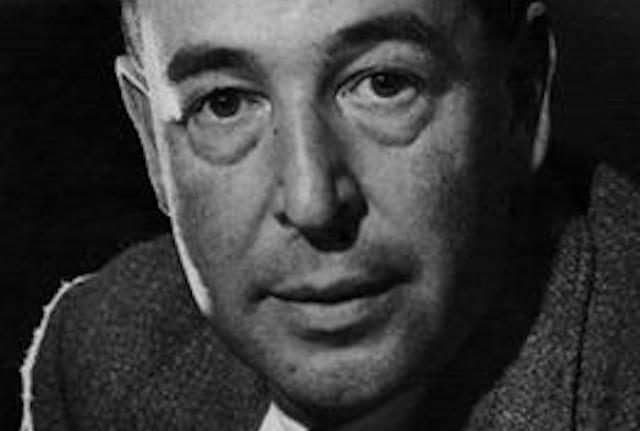
Author CS Lewis wrote extensively on Christianity, though he is perhaps best-known for the seven children’s books he authored, which make upThe Chronicles of Narnia. But before he wrote beloved classics like The Lion, The Witch and the Wardrobe, Lewis also wrote (in letters to a friend) about his sadistic desires. He dubbed himself “Philomastix,” meaning “lover of the whip” in Greek, and wrote to his friend, Arthur Greeves, detailing women he thought would be “a suitable subject for the lash,” including Greeves’ own sister. In another letter he also confides that, “There’s no special virtue in a whip—hundreds of other methods of mild torture are just as good.” And it wasn’t just women that Lewis wanted to whip. While visiting Exeter, Lewis was kicked out by the Dean for getting “royally drunk” and “imploring everyone to let me whip them for the sum of 1s. a lash!”
Another odd quirk of Lewis’ life is his relationship with Jane King Moore. While being trained for the Army, Lewis made a pact with his roommate Edward Moore to take care of the other’s family, if either was killed in the war. Sadly, Moore died in action, and 18-year-old Lewis formed a special bond with 45-year-old Jane King Moore while recovering from his own wounds, eventually moving in with her and her family. Lewis called Moore “mother,” but many have suggested the relationship went well beyond a familial bond. A long-time friend of Lewis’ wrote of the pair, “After conversations with Mrs. Moore’s daughter, Maureen, and a consideration of the way their bedrooms were arranged… I am quite certain they were lovers.”
9. Joseph Smith Jr. had up to 40 wives, some in their teens
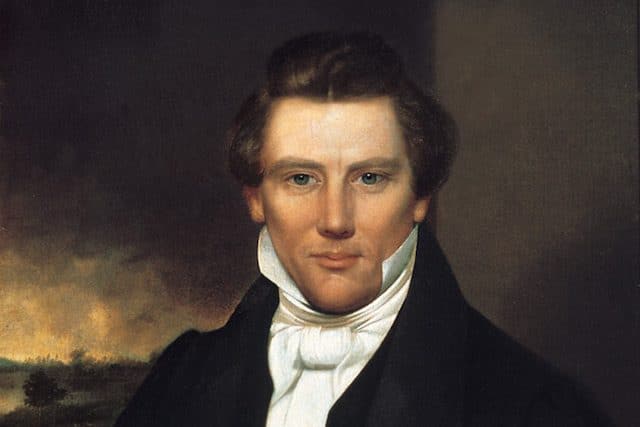
Joseph Smith Jr., the founder and prophet of Mormonism, believed that polygamy was divinely commanded. Despite the on-and-off disapproval of his first wife, Emma, Joseph Smith married a number of additional wives—the Mormon church estimates 30-40 women were “sealed” to Joseph Smith. Some of these marriages were unconsummated, representing an eternal union of souls, while some included all the earthly pleasures of marriage. Some were to single women, while others were to women who already had husbands.
Smith’s youngest bride, Helen Mar Kimball, was only 14 at the time of her marriage to him. While she initially found the idea of plural marriage “improper and unnatural,” Kimball was talked into the marriage by her father, and by Smith. In Kimball’s retelling, Smith persuaded her to agree with the promise of heaven, recalling, “[Smith] said to me, ‘If you will take this step, it will ensure your salvation & exhaltation & that of your father’s household & all of your kindred.’ This promise was so great that I willingly gave myself to purchase so glorious a reward.” It is unclear whether Kimball and Smith’s marriage was merely “celestial” or was consummated. What is clear is that Kimball was one of four teenage brides Smith married in a single month—May 1843.
8. Hans Christian Andersen wasn’t into sex, but he liked to visit brothels and kept a log of his masturbation sessions
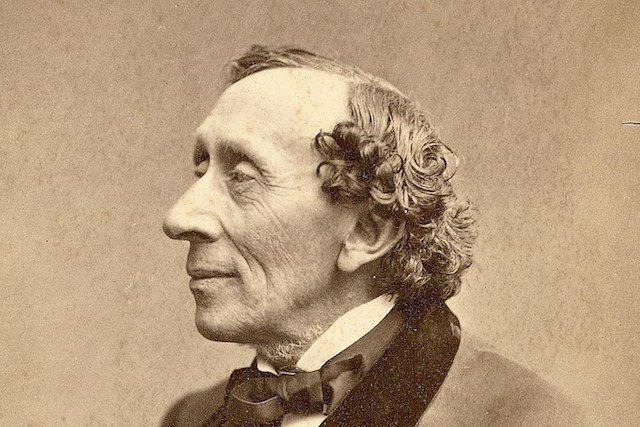
Hans Christian Andersen may be best known for his beloved children’s literature, including such tales as The Little Mermaid and The Emperor’s New Clothes. However, in person, the Danish author was not the jovial, grandfatherly figure many might imagine. Rather, he was awkward and neurotic. Some of his quirks included dramatic behavior when confronting rejection (he threw himself facedown on Charles Dickens’ lawn and bawled after reading a negative review) and some phobias around death (when sleeping, he would put up a note to indicate that he was sleeping and not dead).
Some of Andersen’s oddest behavior had to do with sex. He visited brothels on numerous occasions, but professed that he never had sex with the women there, just looked and talked to them. While visiting Paris, he noted in his journal that the 18-year-old prostitute he engaged, “undressed completely and seemed surprised that I only looked at her.” Andersen’s journals also contain detailed records of his masturbatory sessions, indicating what inspired them. Particularly good sessions were marked “++” and he even included such information as “penis sore.” Andersen’s sessions were inspired by both men and women, and his letters show infatuations with individuals of both sexes, though there is no evidence that he ever consummated any of his love affairs.
7. Henry VIII needed a lot of women to keep him happy, and the Pope wasn’t going to stand in his way
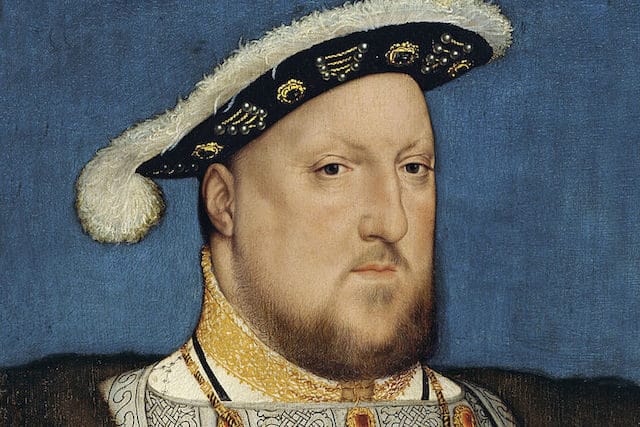
Henry VIII is perhaps best known for his string of wives—6 in total—and the way the unions ended. Two marriages ended in annulments, two ended when Henry had his wives beheaded, one ended when the wife died of natural causes, and the last ended when Henry himself died. However, even 6 wives weren’t enough to keep the king satisfied. He also had a string of mistresses, two of whom bore him children. One of the mistresses, Mary Boleyn, was the sister of Anne Boleyn, who would become Henry’s wife before being executed for adultery.
In order to land Anne Boleyn, Henry first had to figure out a way to be rid of his first wife, Catherine of Aragon (Catherine was also keeping it in the family, having previously been married to Henry’s brother, though the marriage was never consummated). Not only was Henry desperate to bed Anne Boleyn, he was also seeking a healthy male heir, which Catherine, who was pushing 40, had been unable to produce. When the Pope declined to annul the marriage, Henry declared himself the head of the Church of England and forever separated it from Papal authority.
Henry VIII grew disenchanted with Anne Boleyn and had her and several men of his court sentenced to death for adultery (in the case of the men, the charge was treason). In the run-up to Boleyn’s execution, Henry embarked on the party circuit, determined to find a new bride and expressing his mood as one of a man who ditches “a thin old vicious hack in the hope of getting soon a fine horse to ride.” The new horse was Jane Seymour, and he married her less than two weeks after Anne Boleyn’s death.
Despite being prone to obesity himself, Henry was picky about the appearance of his women. When Anne of Cleves (his 4th wife) proved to be less attractive than her portrait had suggested, Henry couldn’t perform in the marital bed, calling her body “disordered” and saying “he could never in her company be provoked and steered to know her carnally.” The marriage was eventually annulled. By the time he had beheaded wife #5 for behaving like a “common harlot,” Henry’s sex drive seemed to be on the wane. Young women were reluctant to marry a king who kept beheading his wives and Henry was nursing a painful jousting injury, so he finally settled down with a two-time widow who he viewed as “a nursemaid rather than a bedmate.”
6. Charlie Chaplin was into underage girls
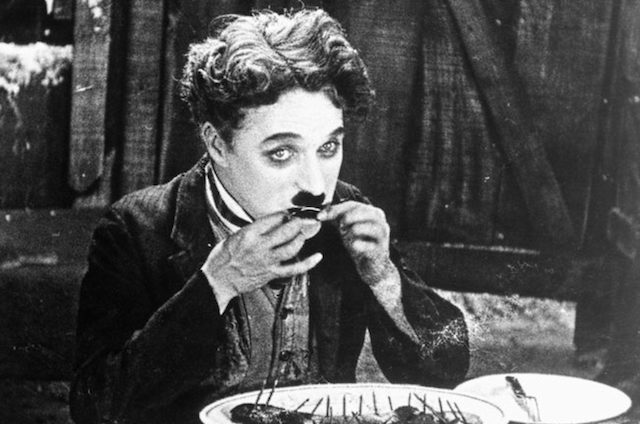
Charlie Chaplin has been called “the first global celebrity,” rising to fame through his comic portrayal of “The Little Tramp,” an Everyman character he embodied in more than 80 films. Known for the outsized pants and shoes and signature moustache of the character he portrayed, Chaplin was famous all over the world. He was also known in a lot of women’s bedrooms, once claiming to have slept with over 2,000 women.
At least some of the many women Chaplin bedded were underage. Three of his four wives were teenagers when he married them; the other was in her 20s, though she had claimed to be younger when she met Chaplin. Charlie’s first wife, Mildred Harris, was a child star who was 15 when Chaplin met her, and 16 when he married her, believing that she was pregnant. They divorced acrimoniously 2 years later. Chaplin’s second wife, Lita Grey, was also underage, just 15 when she became pregnant with his child, and 16 at the time of their marriage. The marriage, which took place in Mexico, came about when Grey refused his offers of money and demands that she get an abortion, and after her shotgun-wielding uncle reminded Chaplin that Grey’s age would support charges of statutory rape. Grey, who has said of Chaplin, “He enjoyed being the first person in a girl’s life,” claimed that on their honeymoon, Chaplin told her that marrying her was better than going to prison.
Unsurprisingly, though it produced two children, the marriage did not last, ending in a nasty and public divorce, in which Grey accused Chaplin of infidelity and “degenerate sexual desires, too revolting… to set forth in this complaint.” Grey, who called Chaplin “a destroyer of girls,” garnered a settlement of over $800,000, the largest in US history at the time. Charlie’s fourth marriage, when he was 54, was also to a teenager—Oona O’Neil, who was 18 at the time. While the marriage took place over the objections of O’Neil’s father, it was Chaplin’s final marriage, enduring until his death in 1977.
5. Jean-Jacques Rousseau wanted to be punished like a little boy

Rousseau is credited with seminal contributions to the development modern political thought; his philosophy influenced the Enlightenment and the French Revolution. However, in addition to exploring the importance of civil society and reason in human development, Rousseau’s writings touch on another theme—his enthusiasm for spanking and being dominated.
This fetish dates to being spanked by his guardian when he was 11, an experience where, “a degree of sensuality had mingled with the smart and shame, which left more of a desire than a fear of repetition.” Rousseau was also into submission, writing, “To fall at the feet of an imperious mistress, obey her mandates, or implore pardon were for me the most exquisite of enjoyments.” Taking this fetish to the extreme, he called an older woman with whom he had a long-term affair “Maman” (“Mother”), and she called him “petit” (“little one”). Rousseau was also an exhibitionist, exposing his bare butt to strangers, behavior that was greeted with laughter and screams.
4. King Edward VII earned the nicknames “Edward the Caresser” and “Dirty Bertie”
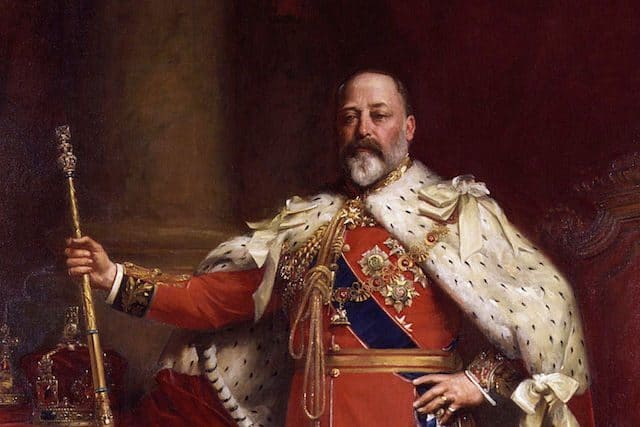
Edward VII was 59 when he finally became the King of England. He used the long wait to engage in all kinds of debauchery. Edward’s long string of scandals began with an affair with a prostitute when he was 19. Edward’s parents, Queen Victoria and Prince Albert, were horrified, and Albert chewed Edward out during a long walk in the rain. Shortly after this altercation, Albert came down with typhoid and died. Victoria, who never really liked her son, blamed Edward’s inability to keep it in his pants for his father’s death.
Albert’s death and Edward’s marriage did nothing to curb the future king’s sexual drive. He often attended country house parties where “corridor creeping” was a central activity. Edward also kept an apartment in Paris, and worked his way through the city’s brothels. He was also an avid patron of the city’s bars and restaurants and his expanding girth (another of his nicknames was “Tum-Tum”) began to constrain his sexual escapades. Rather than give up either appetite, Edward commissioned a special sex chair that supported his weight and allowed him to receive the “royal treatment” from two women at once. When he was finally named king, Edward designated a pew at Westminster for his “special ladies.” Even on his deathbed, one woman wasn’t enough to please Edward. In addition to his wife, his mistress was present, and Edward even requested the two women kiss before his long-suffering wife ordered the mistress removed.
3. Caligula was into absolute power… and maybe his sisters
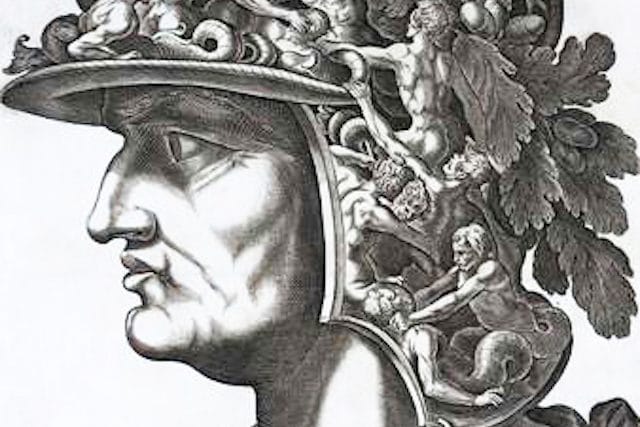
Caligula ruled as Roman emperor for only four years, from AD 37 to AD 41, but managed to spark an astounding array of rumors during that short time, before he was assassinated by members of the Praetorian guard. Reports of his initial rule, which included elaborate public spectacles, including gladiatorial games, were largely positive. However, after recovering from an illness (or perhaps a failed poisoning), Caligula’s behavior changed dramatically. He took on wasteful and pointless construction projects, eliminated his political enemies, and sought to be worshiped as a god.
Contemporaneous Roman historians, including Seneca the younger, suggest he was a man prone to many vices, with a vicious temper and a penchant for cruelty. Seneca describes how Caligula bedded another man’s wife and then publicly, “at the top of his voice, reproached this man with the way his wife behaved in bed.” However, the most extreme charges about Caligula’s behavior were leveled by two Roman historians who were born after Caligula’s death, Cassius Dio and Suetonius. The passage of time suggests these salacious accounts may not be entirely accurate, but they do show the depths of perversion with which Caligula is associated.
Cassius Dio accuses Caligula of incest with his sisters, saying that, “after ravishing them all, he confined two of them to an island, the third having already died.” Suetonius accuses him of “unnatural relations” with several men, including “certain hostages.” He also accuses Caligula of “habitual incest with all his sisters,” forcing them to engage in threesomes with himself and his wife at banquets. Suetonius further notes that the incestuous behavior with one sister began when Caligula was a minor, and continued through her marriage until her death. According to Suetonius, “The rest of his sisters he did not love with so great affection, nor honor so highly, but often prostituted to his favorites.”
2. Grover Cleveland married a woman he had practically raised and fathered an illegitimate child (allegedly through rape)

When you think of US Presidential sex scandals, Grover Cleveland may not be the first name that comes to mind. Nonetheless, his questionable relationships with women suggest he may have been the country’s most perverted president.
Cleveland’s sex scandal, which emerged in 1884, but took place 10 years prior, involved accusations that he had fathered an illegitimate child with Maria Halpin. And it gets worse. According to the affidavit she signed, Halpin had been hounded by Cleveland (who was single at the time) until she agreed to go to dinner with him. Afterward, Halpin claimed, the future President walked her home and violently raped her, threatening to ruin her if she told anyone. Unfortunately, Halpin’s ordeal was far from over. Weeks later, she learned she was pregnant and sought Cleveland’s help. Instead of assisting Halpin, Cleveland arranged for the baby, a son, to be taken from her and adopted after it was born and for Halpin to be committed to a mental asylum. When the news of Cleveland’s involvement in the incident emerged in the press, he launched a smear campaign, admitting the two had been involved (consensually, in his account), and suggesting that he hadn’t been involved in the life of his son because of “doubts about his fatherhood.”
While the news that Cleveland had fathered a child out of wedlock, and was likely a rapist, briefly threatened to derail his Presidential ambitions, Cleveland was still elected to the White House in 1884. Soon his love life would be in the papers again, this time with his marriage to Francis Folsom, who at 21 was 28 years younger than Cleveland and would become the nation’s youngest First Lady. While the age difference is a big one, the truly sketchy aspect of their relationship was that Cleveland, initially known to Francis as “Uncle Cleve,” had known his bride since she was born, even serving as a quasi-guardian after her father, Cleveland’s close friend, died when she was 11. Cleveland reportedly mentioned that he was going to marry her when she was 8 and sitting on his lap, and when asked by friends why he was still a bachelor, responded, “I’m waiting for my bride to grow up.” They probably thought he was speaking in jest (albeit somewhat creepily), but pervy Uncle Cleve followed through, making the woman for whom he had once purchased a pram his wife.
1. The Marquis de Sade
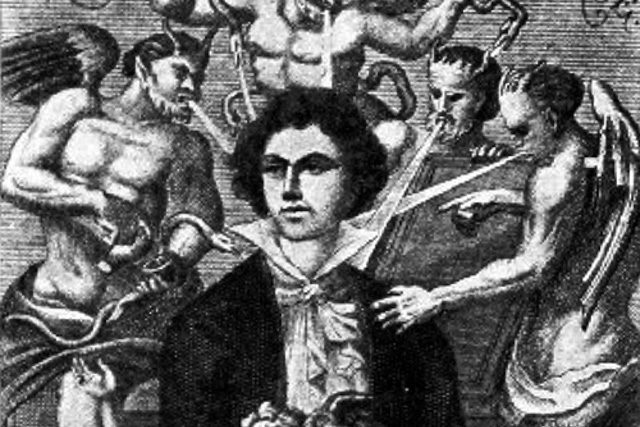
Unlike the other men on the list, who are famous primarily for other reasons and just happen to also be perverts, the Marquis de Sade is known primarily because he was a pervert; or more accurately, a sexual predator. “Sadism,” the word for the tendency to derive pleasure from the pain of others, comes from his name. He literally wrote the book (or rather, books) on it, penning dark pornography themed around torture and depravity that was considered so dangerous that France criminalized publication of several of his works until the 1950s.
Unfortunately, Sade’s twisted fantasies were not contained merely in his books. He spent much of his life in prison or mental hospitals for his various sexual crimes. His first serious conviction was for tying up a chambermaid, cutting her, and dripping hot wax in her wounds. The next was for, on a trip with his manservant, poisoning several prostitutes (2 of whom nearly died) with chocolates laced with aphrodisiacs to make them more amenable to his deviant sexual desires. After escaping from prison, Sade brought his wife into the act. The pair recruited some young (15-years-old, or so) servants and those “Five young females and one male were trapped in the chateau for six weeks of depredations, orchestrated in theatrical fashion by Sade under the indulgent eyes of his wife.” This was the last straw for Sade’s mother-in-law, who had a royal warrant issued for his indefinite incarceration.
2 Comments
Some of these make you sound like prudes; because some of the men like Hans Christian Anderson and Edward the VII were only men with huge libidos. How were they “perverts”?
Do have something against sex?
funny how the modern ones are all democrats, liberals or outright socialists.